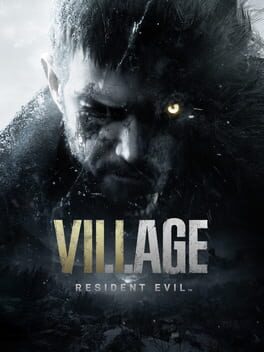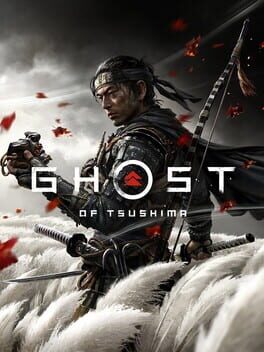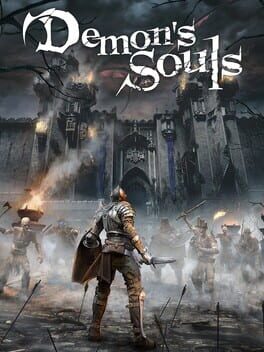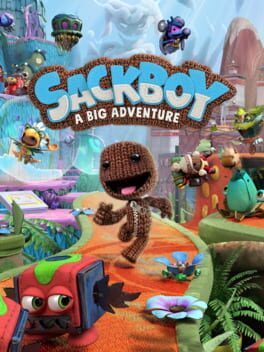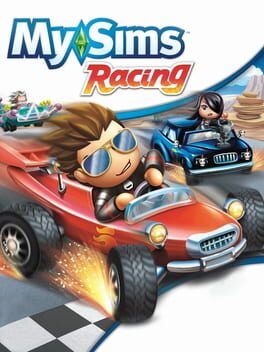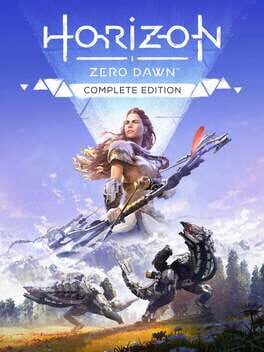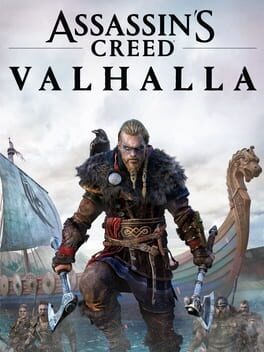ArabiWasabi
2252 Reviews liked by ArabiWasabi
Ghost of Tsushima
2020
Ghost of Tsushima is a game that was a very pleasant surprise to me. I had only seen information or discussion about it here and there but never followed the hype myself. However, once I dove into the world of Tsushima and experienced Jin's journey, I realized how deserved the hype and praise for it was. In my opinion, this game is a masterpiece in its narrative, its visuals, and its gameplay, among other aspects. Not perfect, of course, but excellent in nearly everything it sets out to do.
Sacrificing Honor for Victory
----------
Certainly, Ghost of Tsushima's story is something that would not be at all out of place in a classic samurai film or other work based on feudal Japan. But this is not to say that it feels tired or uninteresting. Where the basis of the plot is somewhat basic, it is in its execution that I find Tsushima excels in offering a very compelling narrative.
Jin Sakai, nephew of samurai Lord Shimura, is quickly given the responsibility of liberating Tsushima Island from the Mongols who have invaded it. While the plot quickly develops into something overall more complex than that, this responsibility is the driving force behind Jin's actions and the source of his inner conflict from beginning to end. Does Jin embrace the "Ghost" persona, adopt the most effective tactics to protect his homeland, and forsake the code of honor that he had trained by for years? Or does he follow the path of the honorable samurai and preserve his principles, but at the expense of his countrymen and women? Although it does not significantly affect the story for the most part, the player is given that choice in how they approach each fight.
But Jin is not alone in his journey. In his travels and through other circumstances, the young samurai meets a variety of interesting people with both colorful and tragic backgrounds, some of which will join him and remain his staunchest allies until he achieves what he is tasked with doing.
And this is one area (among several) where Tsushima gets it right. Jin is indeed the main character and his story is never not the central focus of the game's plot, but other characters (each of whom gets their own chains of story-heavy side-quests) are given sufficient time to develop so the player understands their respective situations and can get emotionally invested in them. Even for the more minor side-quests, this remains true. More often than not, I found myself feeling sympathy or sadness over what had happened to a friend, ally, or even a random citizen of Tsushima because I was personally allowed to see the cause of their pain myself. Tsushima really embraces active storytelling and uses it to great effect.
A Stunning World to Explore
----------
I don't exaggerate when I say that Tsushima is the most visually impressive, beautiful game that I've played. Even on the base PS4 console, every part of the world is simply gorgeous. The swaying of the plant life in the wind, the rain effects in stormy weather, the radiance of the sun on the horizon - it's a treat for the eyes no matter where you are in the world. Personally, I found Kamiagata to be the most enjoyable to explore as far as the natural scenery is concerned. The wintry weather and the forests of red and white trees really stood out to me.
And the visual quality extends to the buildings and other structures as well. It's no surprise to see that traditional Japanese building styles are implemented throughout the environment, but the level of detail that is featured in every landmark shows the dedication on the developers' part to ensure that Tsushima conveys a Japanese setting in a very realistic way.
The same is very much true for Ghost of Tsushima's audio direction as well. One might call it minimalist, but the music is used brilliantly to accent the intended tone and subject for each scene. Especially in some of the most emotional moments of the game, the music kicks in and places you in the perfect state of mind to experience each part of the story.
One track that really represents what I mean is "The Way of the Ghost." In one of the most heart-wrenching scenes in the game, the music and vocals move to the forefront to reinforce the emotion of what has happened. It's fantastic how well that was implemented.
Yet visuals and audio can only carry a game so far, of course, and it is in the quests and random events of Tsushima Island that the bulk of what you'll be doing is found. Once you are given your horse (who you can name based on three choices; I chose "Kage," which means "shadow"), the first section of the world is opened up to you to explore at your leisure. At all times you have your main story goal clearly marked for you (called "Jin's Journey"). And in addition to the main story, you have several side-quests - some involving major story characters and others only minor NPCs - to complete as well, called the "Tales of Tsushima."
There is something to be said for enjoyment overriding how important flaws are for each person playing a game, but it's worth mentioning that this is one of the few gripes that I do have with Ghost of Tsushima, as much as I love most everything else. Tsushima is no exception to how open-world games are usually designed in that certain activities are repeated across multiple side quests, causing the minor side quests to feel a bit samey as a result. But as I mentioned before, when you enjoy a game enough, little things like that don't matter as much. Especially with the tales dedicated to members of the main cast, this matters very little, as the stories their quests tell are so engaging that I found myself immediately moving into the next quest involving them just to see what happens.
Moreover, other things the player can do when traveling through the world are discovering hot springs, fox dens, bamboo strikes - and more - as well as quietly infiltrating Mongol camps (or running in sword-first, if you're so inclined) to liberate each region of the map, or engaging in dramatic duels with other skilled swordsmen and women. This is where Ghost of Tsushima's excellent combat system comes into play.
Living and Dying by the Sword
------------
Not long after the player assumes control of Jin, you're given the katana of the Sakai clan, the weapon you'll wield and improve (by crafting, as you do with your other gear and armor as well) throughout the remainder of the game. You begin with a single stance (style of combat) and a relatively limited moveset. But this is a good decision, in my opinion, as it motivates the player to master the tools they're given early on before advancing and earning new abilities. As you progress, Jin will learn a myriad of different moves that he can perform with his blade and with other items the player unlocks as they go along.
While there are certainly some elements of the combat that push the bounds of realism, there's no denying how good it feels to perfectly parry an enemy's attack and end them in a single stroke of your blade. Or when you break through a shield to slice apart the one holding it through a properly executed combo. Tsushima's combat is powerful and weighty, yet it never loses the grace and speed one would expect from someone who is a seasoned swordsman. Jin is certainly very skilled with a blade, and mastering the combat lets that shine through. Quickly shifting from opponent to opponent while dodging, blocking, and parrying is part of an expertly designed system with a very high skill ceiling. It's easily become my favorite combat in any game I've played.
Of particular note is the beautiful intensity of the one-on-one duels that take place at certain points in the story or in side-quests. These instances remove your access to any other weapons you have apart from your sword. A true test of your skills, I'd say these encounters are some of the best parts of Tsushima. The cinematic flair, the emotion behind many of them, and the pure brutality of it - they get your blood pumping and have you on the edge of your seat, as one mistake can indeed be the difference between life and death.
But the combat is not just limited to swordplay. As part of his Ghost persona, Jin learns to use the shadows and other tactics for his benefit, eventually becoming a skilled assassin. Embracing the Ghost leads him to use tools like archery, smoke bombs, kunai, poison, and other weapons characteristic of the classic ninja to fight the Mongol invaders. In the same way that the traditional sword fighting was endlessly fun to experiment with, Tsushima's stealth mechanics, while perhaps more limited than those found in other games, are very enjoyable to use as well. Like Jin's sword skills, his options to attack from the shadows will only increase as you advance through the game. Chain assassinations, new arrow types, darts that cause enemies to lose their sense and attack each other, etc. The number of choices creates the potential for many gameplay possibilities.
A Lovingly-crafted Masterpiece
-----------
Ghost of Tsushima, if you couldn't tell already, is a game that I love very much. I could go on an on about so much, from the most subtle of details to the most obvious strengths, along with many other reasons why I think it's excellent, but what is most memorable to me is the impression I was left with as I played. If nothing else, I get a very strong sense that the folks over at Sucker Punch thoroughly enjoyed making the game. It's not often that I play something that draws me into its world and characters in such an intense way, but Tsushima did that.
For that alone, I highly recommend Ghost of Tsushima to anyone interested in open-world games, meaningful narratives, action-adventure games, and the like. It's an amazing experience that I will fondly remember as much as I do for games like the Trails series and Breath of the Wild, and I will likewise look forward to returning to the game in the years to come.
Sacrificing Honor for Victory
----------
Certainly, Ghost of Tsushima's story is something that would not be at all out of place in a classic samurai film or other work based on feudal Japan. But this is not to say that it feels tired or uninteresting. Where the basis of the plot is somewhat basic, it is in its execution that I find Tsushima excels in offering a very compelling narrative.
Jin Sakai, nephew of samurai Lord Shimura, is quickly given the responsibility of liberating Tsushima Island from the Mongols who have invaded it. While the plot quickly develops into something overall more complex than that, this responsibility is the driving force behind Jin's actions and the source of his inner conflict from beginning to end. Does Jin embrace the "Ghost" persona, adopt the most effective tactics to protect his homeland, and forsake the code of honor that he had trained by for years? Or does he follow the path of the honorable samurai and preserve his principles, but at the expense of his countrymen and women? Although it does not significantly affect the story for the most part, the player is given that choice in how they approach each fight.
But Jin is not alone in his journey. In his travels and through other circumstances, the young samurai meets a variety of interesting people with both colorful and tragic backgrounds, some of which will join him and remain his staunchest allies until he achieves what he is tasked with doing.
And this is one area (among several) where Tsushima gets it right. Jin is indeed the main character and his story is never not the central focus of the game's plot, but other characters (each of whom gets their own chains of story-heavy side-quests) are given sufficient time to develop so the player understands their respective situations and can get emotionally invested in them. Even for the more minor side-quests, this remains true. More often than not, I found myself feeling sympathy or sadness over what had happened to a friend, ally, or even a random citizen of Tsushima because I was personally allowed to see the cause of their pain myself. Tsushima really embraces active storytelling and uses it to great effect.
A Stunning World to Explore
----------
I don't exaggerate when I say that Tsushima is the most visually impressive, beautiful game that I've played. Even on the base PS4 console, every part of the world is simply gorgeous. The swaying of the plant life in the wind, the rain effects in stormy weather, the radiance of the sun on the horizon - it's a treat for the eyes no matter where you are in the world. Personally, I found Kamiagata to be the most enjoyable to explore as far as the natural scenery is concerned. The wintry weather and the forests of red and white trees really stood out to me.
And the visual quality extends to the buildings and other structures as well. It's no surprise to see that traditional Japanese building styles are implemented throughout the environment, but the level of detail that is featured in every landmark shows the dedication on the developers' part to ensure that Tsushima conveys a Japanese setting in a very realistic way.
The same is very much true for Ghost of Tsushima's audio direction as well. One might call it minimalist, but the music is used brilliantly to accent the intended tone and subject for each scene. Especially in some of the most emotional moments of the game, the music kicks in and places you in the perfect state of mind to experience each part of the story.
One track that really represents what I mean is "The Way of the Ghost." In one of the most heart-wrenching scenes in the game, the music and vocals move to the forefront to reinforce the emotion of what has happened. It's fantastic how well that was implemented.
Yet visuals and audio can only carry a game so far, of course, and it is in the quests and random events of Tsushima Island that the bulk of what you'll be doing is found. Once you are given your horse (who you can name based on three choices; I chose "Kage," which means "shadow"), the first section of the world is opened up to you to explore at your leisure. At all times you have your main story goal clearly marked for you (called "Jin's Journey"). And in addition to the main story, you have several side-quests - some involving major story characters and others only minor NPCs - to complete as well, called the "Tales of Tsushima."
There is something to be said for enjoyment overriding how important flaws are for each person playing a game, but it's worth mentioning that this is one of the few gripes that I do have with Ghost of Tsushima, as much as I love most everything else. Tsushima is no exception to how open-world games are usually designed in that certain activities are repeated across multiple side quests, causing the minor side quests to feel a bit samey as a result. But as I mentioned before, when you enjoy a game enough, little things like that don't matter as much. Especially with the tales dedicated to members of the main cast, this matters very little, as the stories their quests tell are so engaging that I found myself immediately moving into the next quest involving them just to see what happens.
Moreover, other things the player can do when traveling through the world are discovering hot springs, fox dens, bamboo strikes - and more - as well as quietly infiltrating Mongol camps (or running in sword-first, if you're so inclined) to liberate each region of the map, or engaging in dramatic duels with other skilled swordsmen and women. This is where Ghost of Tsushima's excellent combat system comes into play.
Living and Dying by the Sword
------------
Not long after the player assumes control of Jin, you're given the katana of the Sakai clan, the weapon you'll wield and improve (by crafting, as you do with your other gear and armor as well) throughout the remainder of the game. You begin with a single stance (style of combat) and a relatively limited moveset. But this is a good decision, in my opinion, as it motivates the player to master the tools they're given early on before advancing and earning new abilities. As you progress, Jin will learn a myriad of different moves that he can perform with his blade and with other items the player unlocks as they go along.
While there are certainly some elements of the combat that push the bounds of realism, there's no denying how good it feels to perfectly parry an enemy's attack and end them in a single stroke of your blade. Or when you break through a shield to slice apart the one holding it through a properly executed combo. Tsushima's combat is powerful and weighty, yet it never loses the grace and speed one would expect from someone who is a seasoned swordsman. Jin is certainly very skilled with a blade, and mastering the combat lets that shine through. Quickly shifting from opponent to opponent while dodging, blocking, and parrying is part of an expertly designed system with a very high skill ceiling. It's easily become my favorite combat in any game I've played.
Of particular note is the beautiful intensity of the one-on-one duels that take place at certain points in the story or in side-quests. These instances remove your access to any other weapons you have apart from your sword. A true test of your skills, I'd say these encounters are some of the best parts of Tsushima. The cinematic flair, the emotion behind many of them, and the pure brutality of it - they get your blood pumping and have you on the edge of your seat, as one mistake can indeed be the difference between life and death.
But the combat is not just limited to swordplay. As part of his Ghost persona, Jin learns to use the shadows and other tactics for his benefit, eventually becoming a skilled assassin. Embracing the Ghost leads him to use tools like archery, smoke bombs, kunai, poison, and other weapons characteristic of the classic ninja to fight the Mongol invaders. In the same way that the traditional sword fighting was endlessly fun to experiment with, Tsushima's stealth mechanics, while perhaps more limited than those found in other games, are very enjoyable to use as well. Like Jin's sword skills, his options to attack from the shadows will only increase as you advance through the game. Chain assassinations, new arrow types, darts that cause enemies to lose their sense and attack each other, etc. The number of choices creates the potential for many gameplay possibilities.
A Lovingly-crafted Masterpiece
-----------
Ghost of Tsushima, if you couldn't tell already, is a game that I love very much. I could go on an on about so much, from the most subtle of details to the most obvious strengths, along with many other reasons why I think it's excellent, but what is most memorable to me is the impression I was left with as I played. If nothing else, I get a very strong sense that the folks over at Sucker Punch thoroughly enjoyed making the game. It's not often that I play something that draws me into its world and characters in such an intense way, but Tsushima did that.
For that alone, I highly recommend Ghost of Tsushima to anyone interested in open-world games, meaningful narratives, action-adventure games, and the like. It's an amazing experience that I will fondly remember as much as I do for games like the Trails series and Breath of the Wild, and I will likewise look forward to returning to the game in the years to come.
Demon's Souls
2020
The ditching of the classic crafting aspect of the Planet series may disappoint some, but for those craving that simple platforming joy of Astro's Playroom will find it scratching that itch.
The design is just as bright and luscious as ever, with that sickly sweet CBBC kids tone - almost too airy and child oriented considering the inventive, sometimes tricky gameplay. It also feels incredibly expensive not just in visual scale but the soundtrack of huge pop songs and notable British voice actors: both Dawn French and Richard E. Grant, though no reprisal from Stephen Fry.
It's certainly not as consistently engaging as other platformers, even dragging in places, but there's enough going on pass the time, especially for casual multiplayers.
The design is just as bright and luscious as ever, with that sickly sweet CBBC kids tone - almost too airy and child oriented considering the inventive, sometimes tricky gameplay. It also feels incredibly expensive not just in visual scale but the soundtrack of huge pop songs and notable British voice actors: both Dawn French and Richard E. Grant, though no reprisal from Stephen Fry.
It's certainly not as consistently engaging as other platformers, even dragging in places, but there's enough going on pass the time, especially for casual multiplayers.
MySims Racing
2009
I gave it a good fifteen hours but was bored. It's not terrible or anything, there's just nothing that feels new or interesting for me.
Feels like another game that's a variation on the same open-world "narrative epic" I've played a thousand times before. Picking shit up and crafting. Pinging my radar thing to find items, climbing big shit to unlock map stuff. Repeat.
No thank you.
Feels like another game that's a variation on the same open-world "narrative epic" I've played a thousand times before. Picking shit up and crafting. Pinging my radar thing to find items, climbing big shit to unlock map stuff. Repeat.
No thank you.
I think I've found it, I think I've found the most boring, uninspired, lazy, repetitive, buggy, open-world game that I've ever played.
I played roughly 67 hours of this and I was never engaged with the story or its characters, everything felt very hallow and bland.
The combat is janky as hell. Now I can loo based jank sometimes, Hell one of my favorite games of all time Afro Samurai's combat is janky as hell, but the difference is that this game is over 90 hours long and the combat never changes, turning a janky but fan at times combat system to a repetitive janky mess.
Speaking of repetitive the open world, it's too bloated with the same copy and pasted items everywhere, nothing you do in the open world feels meaningful or god forbid fun, it's just hour upon hour of grinding for nothing other than a number. RPGs get away with this because you're playing an RPG for its story, but where the gameplay is detached from the story and characters so everything you do feels hollow and pointless.
I guess the only thing I sorta liked was some of the side missions, most of the ones I played were interesting little missions rather than the same copy and pasted side missions from past games, but it's not enough to save this game in my eyes.
I played roughly 67 hours of this and I was never engaged with the story or its characters, everything felt very hallow and bland.
The combat is janky as hell. Now I can loo based jank sometimes, Hell one of my favorite games of all time Afro Samurai's combat is janky as hell, but the difference is that this game is over 90 hours long and the combat never changes, turning a janky but fan at times combat system to a repetitive janky mess.
Speaking of repetitive the open world, it's too bloated with the same copy and pasted items everywhere, nothing you do in the open world feels meaningful or god forbid fun, it's just hour upon hour of grinding for nothing other than a number. RPGs get away with this because you're playing an RPG for its story, but where the gameplay is detached from the story and characters so everything you do feels hollow and pointless.
I guess the only thing I sorta liked was some of the side missions, most of the ones I played were interesting little missions rather than the same copy and pasted side missions from past games, but it's not enough to save this game in my eyes.
